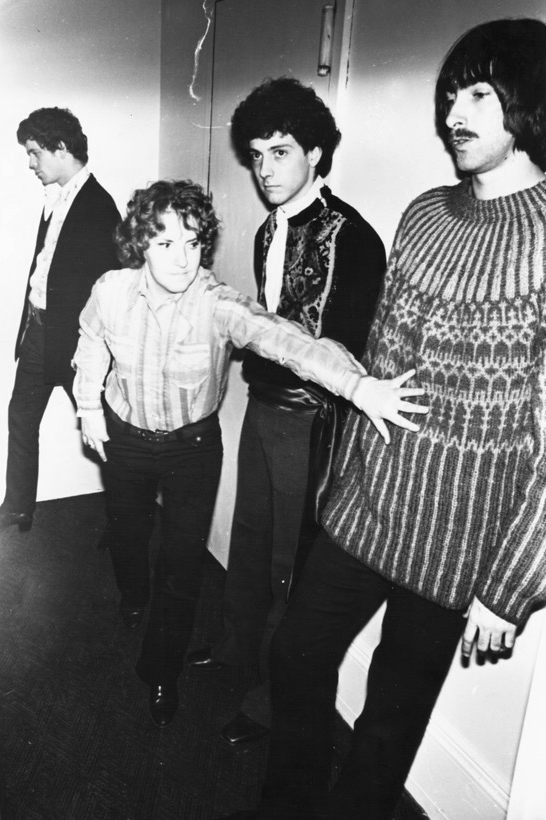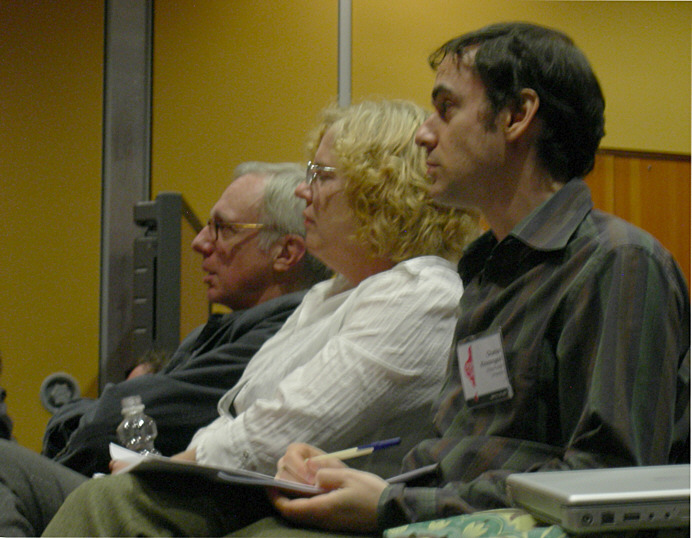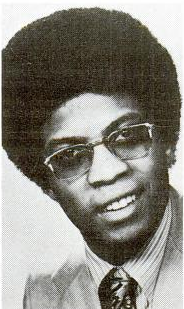|
Let Us Now Praise Famous Death Dwarves
"Let Us Now Praise Famous Death Dwarves (or how I slugged it out with Lou Reed and stayed awake)" is an infamous interview with Lou Reed conducted by Lester Bangs and published in ''Creem'' magazine in 1975. It is now regarded as a classic document of music journalism. The title is a play on ''Let Us Now Praise Famous Men,'' the book by James Agee. The full interview was reprinted in the New Musical Express in November 2013, as a tribute to Lou Reed, who died the previous month. Approach In this Gonzo-style interview, Lester Bangs attempts to demythologize rock-n-roll and its stars by giving the arrogant behavior of rock superstars a more vulnerable, human context. Content An extended introduction describes Bangs' complex feelings about the music of Lou Reed, admiring his songwriting genius, but intrigued by some of the anti-social aspects of Reed's more challenging albums and his sometimes-hostile personality. After fortifying himself with research and drugs, Bangs meets Reed ... [...More Info...] [...Related Items...] OR: [Wikipedia] [Google] [Baidu] |
Lou Reed
Lewis Allan Reed (March 2, 1942October 27, 2013) was an American musician and songwriter. He was the guitarist, singer, and principal songwriter for the rock band the Velvet Underground and had a solo career that spanned five decades. Although not commercially successful during its existence, the Velvet Underground came to be regarded as one of the most influential bands in the history of underground music, underground and alternative rock music. Reed's distinctive deadpan voice, poetic and Transgressive art, transgressive lyrics, and experimental guitar playing were trademarks throughout his long career. Having played guitar and sung in doo-wop groups in high school, Reed studied poetry at Syracuse University under Delmore Schwartz, and served as a radio DJ, hosting a late-night avant-garde music program while at college. After graduating from Syracuse, he went to work for Pickwick Records in New York City, a low-budget record company that specialized in sound-alike recording ... [...More Info...] [...Related Items...] OR: [Wikipedia] [Google] [Baidu] |
Lester Bangs
Leslie Conway "Lester" Bangs (December 14, 1948 – April 30, 1982) was an American music journalist and critic. He wrote for ''Creem'' and ''Rolling Stone'' magazines and was also a performing musician. The music critic Jim DeRogatis called him "America's greatest rock critic". Early life Bangs was born in Escondido, California. He was the son of Norma Belle (''née'' Clifton) and Conway Leslie Bangs, a truck driver. Both of his parents were from Texas: his father from Enloe and his mother from Pecos County. Norma Belle was a devout Jehovah's Witness. Conway died in a fire when his son was young. When Bangs was 11, he moved with his mother to El Cajon, also in San Diego County. His early interests and influences ranged from the Beat Generation (particularly William S. Burroughs) and jazz musicians John Coltrane and Miles Davis, to comic books and science fiction. He met Cameron Crowe while they were both contributing music pieces to '' The San Diego Door'', an unde ... [...More Info...] [...Related Items...] OR: [Wikipedia] [Google] [Baidu] |
Creem
''Creem'' (often stylized in all caps) is an American rock music magazine and entertainment company, founded in Detroit, whose initial print run lasted from 1969 to 1989. It was first published in March 1969 by Barry Kramer and founding editor Tony Reay. Influential critic Lester Bangs served as the magazine's editor from 1971 to 1976. It suspended production in 1989 but attained a short-lived renaissance in the early 1990s as a tabloid. In June 2022, ''Creem'' was relaunched as a digital archive, website, weekly newsletter, and quarterly print edition. The magazine is noted for having been an early champion of various heavy metal, punk rock, new wave and alternative bands, especially bands based in Detroit. The term "punk rock" was coined in the May 1971 issue of ''Creem,'' in Dave Marsh's ''Looney Tunes'' column about ? and the Mysterians. That same issue is sometimes credited with having originated the term "heavy metal" as well; in fact, the term had been used earlier ... [...More Info...] [...Related Items...] OR: [Wikipedia] [Google] [Baidu] |
Music Journalism
Music journalism (or music criticism) is media criticism and reporting about music topics, including popular music, classical music, and traditional music. Journalists began writing about music in the eighteenth century, providing commentary on what is now regarded as classical music. In the 1960s, music journalism began more prominently covering popular music like rock and pop after the breakthrough of the Beatles. With the rise of the internet in the 2000s, music criticism developed an increasingly large online presence with music bloggers, aspiring music critics, and established critics supplementing print media online. Music journalism today includes reviews of songs, albums and live concerts, profiles of recording artists, and reporting of artist news and music events. Origins in classical music criticism Music journalism has its roots in classical music criticism, which has traditionally comprised the study, discussion, evaluation, and interpretation of music that ... [...More Info...] [...Related Items...] OR: [Wikipedia] [Google] [Baidu] |
Let Us Now Praise Famous Men
''Let Us Now Praise Famous Men'' is a book with text by American writer James Agee and photographs by American photographer Walker Evans, first published in 1941 in the United States. The work documents the lives of impoverished tenant farmers during the Great Depression. Although it is in keeping with Evans's work with the Farm Security Administration, the project was initiated not by the FSA, but by ''Fortune'' magazine. The title derives from a passage in the Wisdom of Sirach (44:1) that begins, " Let us now praise famous men, and our fathers that begat us." Background ''Let Us Now Praise Famous Men'' grew out of an assignment that Agee and Evans accepted in 1936 to produce a ''Fortune'' article on the conditions among sharecropper families in the American South during the Great Depression. It was the time of U.S. President Franklin Roosevelt's "New Deal" programs designed to help the poorest segments of the society. Agee and Evans spent eight weeks that summer researchin ... [...More Info...] [...Related Items...] OR: [Wikipedia] [Google] [Baidu] |
James Agee
James Rufus Agee ( ; November 27, 1909 – May 16, 1955) was an American novelist, journalist, poet, screenwriter and film critic. In the 1940s, writing for ''Time'', he was one of the most influential film critics in the United States. His autobiographical novel, '' A Death in the Family'' (1957), won the author a posthumous 1958 Pulitzer Prize. Agee is also known as a co-writer of the book '' Let Us Now Praise Famous Men'' and as the screenwriter of the film classics ''The African Queen'' and '' The Night of the Hunter''. Early life and education Agee was born in Knoxville, Tennessee, to Hugh James Agee and Laura Whitman Tyler, at Highland Avenue and 15th Street, which was renamed James Agee Street, in what is now the Fort Sanders neighborhood. When Agee was six, his father was killed in an automobile accident. From the age of seven, Agee and his younger sister, Emma, were educated in several boarding schools. The most prominent of these was near his mother's summer cottage t ... [...More Info...] [...Related Items...] OR: [Wikipedia] [Google] [Baidu] |
New Musical Express
''New Musical Express'' (''NME'') is a British music, film, gaming and culture website, bimonthly magazine, and brand. Founded as a newspaper in 1952, with the publication being referred to as a " rock inkie", the ''NME'' would become a magazine that ended up as a free publication as well as a webzine, and the brand has also been used for their NME Awards show, the NME Tours and the former NME Radio station. As a "rock inkie", ''NME'' was the first British newspaper to include a singles chart, adding that feature in the edition of 14 November 1952. In the 1970s, it became the best-selling British music newspaper. From 1972 to 1976, it was particularly associated with gonzo journalism then became closely associated with punk rock through the writings of Julie Burchill, Paul Morley, and Tony Parsons. It started as a music newspaper, and gradually moved toward a magazine format during the 1980s and 1990s, changing from newsprint in 1998. The magazine's website NME.co ... [...More Info...] [...Related Items...] OR: [Wikipedia] [Google] [Baidu] |
Gonzo Journalism
Gonzo journalism is a style of journalism that is written without claims of objectivity, often including the reporter as part of the story using a first-person narrative. The word "gonzo" is believed to have been first used in 1970 to describe an article about the Kentucky Derby by Hunter S. Thompson, who popularized the style. It is an energetic first-person participatory writing style in which the author is a protagonist, and it draws its power from a combination of social critique and self-satire. It has since been applied to other subjective artistic endeavors. Gonzo journalism involves an approach to accuracy that concerns the reporting of personal experiences and emotions, in contrast to traditional journalism, which favors a detached style and relies on facts or quotations that can be verified by third parties. Gonzo journalism disregards the strictly edited product once favored by newspaper media and strives for a more personal approach; the personality of a piece ... [...More Info...] [...Related Items...] OR: [Wikipedia] [Google] [Baidu] |
Amphetamine
Amphetamine (contracted from Alpha and beta carbon, alpha-methylphenethylamine, methylphenethylamine) is a central nervous system (CNS) stimulant that is used in the treatment of attention deficit hyperactivity disorder (ADHD), narcolepsy, and obesity; it is also used to treat binge eating disorder in the form of its inactive prodrug lisdexamfetamine. Amphetamine was discovered as a chemical in 1887 by Lazăr Edeleanu, and then as a drug in the late 1920s. It exists as two enantiomers: levoamphetamine and dextroamphetamine. ''Amphetamine'' properly refers to a specific chemical, the Racemic mixture, racemic free base, which is equal parts of the two enantiomers in their pure amine forms. The term is frequently used informally to refer to any combination of the enantiomers, or to either of them alone. Historically, it has been used to treat nasal congestion and depression. Amphetamine is also used as an Performance-enhancing substance, athletic performance enhancer and Nootropic ... [...More Info...] [...Related Items...] OR: [Wikipedia] [Google] [Baidu] |
Herbie Hancock
Herbert Jeffrey Hancock (born April 12, 1940) is an American jazz musician, bandleader, and composer. He started his career with trumpeter Donald Byrd's group. Hancock soon joined the Miles Davis Quintet, where he helped to redefine the role of a jazz rhythm section and was one of the primary architects of the post-bop sound. In the 1970s, he experimented with jazz fusion, funk, and electro-funk, electro styles using a wide array of synthesizers and electronics. It was during this time that he released one of his best-known and most influential albums, ''Head Hunters''. Hancock's best-known compositions include "Cantaloupe Island", "Watermelon Man (composition), Watermelon Man", "Maiden Voyage (composition), Maiden Voyage", and "Chameleon (composition), Chameleon", all of which are jazz standards. During the 1980s, he had a hit single with the electronic instrumental "Rockit (song), Rockit", a collaboration with bassist/producer Bill Laswell. Hancock has won an Academy Awards, Ac ... [...More Info...] [...Related Items...] OR: [Wikipedia] [Google] [Baidu] |
Music Journalism
Music journalism (or music criticism) is media criticism and reporting about music topics, including popular music, classical music, and traditional music. Journalists began writing about music in the eighteenth century, providing commentary on what is now regarded as classical music. In the 1960s, music journalism began more prominently covering popular music like rock and pop after the breakthrough of the Beatles. With the rise of the internet in the 2000s, music criticism developed an increasingly large online presence with music bloggers, aspiring music critics, and established critics supplementing print media online. Music journalism today includes reviews of songs, albums and live concerts, profiles of recording artists, and reporting of artist news and music events. Origins in classical music criticism Music journalism has its roots in classical music criticism, which has traditionally comprised the study, discussion, evaluation, and interpretation of music that ... [...More Info...] [...Related Items...] OR: [Wikipedia] [Google] [Baidu] |




